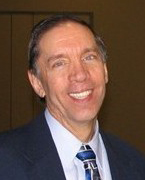
Gross reflects on mental health advocacy
 Shel Gross will retire at the end of the month after leading advocacy for Mental Health America of Wisconsin since 2000.
Shel Gross will retire at the end of the month after leading advocacy for Mental Health America of Wisconsin since 2000.
Gross, the organization’s director of public policy, recently reflected on his 45-year career in mental health with Wisconsin Health News.
Edited excerpts are below.
WHN: What have been some of the sea changes in mental healthcare that you’ve seen?
SG: One is the whole movement to trauma-informed care and understanding about traumas as related to how people present to us in the mental health system and what that says about how we need to work with them. I remember 45 years ago, I started working in a private psych hospital, and really virtually every female patient I worked with, at some point we would uncover some sort of sexual trauma in their life. As I told people, I wasn’t smart enough to somehow figure out this is a thing. It was certainly something I recognized but didn’t know what to do with. So I think that’s been one.
Another thing from my point of view where there’s been an incredible change is the role of people with lived experience of mental illness, both in the advocacy we do and in providing services. So again, 40 years ago, in the substance use field, people in recovery were part of staff. That was not an unusual model. But it did not exist for people with mental illnesses. And, now we have certified peer specialists. We see those individuals in lots of our programs. We have state funding for the peer-run respites. So understanding and appreciating the value of people of lived experience, I think has been pretty transformative for the mental health system.
WHN: What are some of the challenges that remain?
SG: So stigma remains an issue. In some ways, we’re seeing a change among younger folks where there is not the same sort of stigma that we’ve seen in the past. But you know, unfortunately, in a lot of ways, still the attributions of gun violence to people with mental illness, which is actually not supported by any facts for the most part, has continued sort of a long tradition of making people afraid of people with mental illness and making people who might be in need sometimes afraid to come for help. So that continues to be a concern.
And then simply access to services. We still have huge shortages of service availability and workforce issues in many parts of Wisconsin, but that is similar to what we see across the United States. Some of the solutions to that are not necessarily professionals. It can be peers. It can be various types of programs. But I don’t think we’re anywhere near to where we need to be in terms of access to services for people.
WHN: What are some of the more major policy initiatives you’ve been involved with at Mental Health America?
SG: Certainly, parity legislation when it was enacted was a huge victory for the mental health field to have that level of recognition. That also gets at the access because when you have strict – they weren’t limits, they were mandated minimums – but that’s what insurers were providing. That meant providers simply were often not getting paid or having to do reduced fees for people for services they would ordinarily get reimbursed for if it was another medical condition. That had a lot of meaning for mental health advocates.
I think it was really interesting, during this election cycle, that we saw everybody talk about at least defending the right to have services, healthcare, despite pre-existing conditions. That was not a given. The fact that people had to say that I think was really significant. It certainly came out of more than just our parity fight, but that was a big piece of that.
The other in terms of looking at one big piece, the governor’s budget initiative in 2013 where the state took on the non-federal share of the reimbursement for Medicaid-funded Comprehensive Community Services, that was a big thing for us. Counties were having to pay that, and still have to pay that for other Medicaid mental health services, and that was leading to inequities in access to services. So that was a huge step. That same budget also had the funding for the peer-run respites, which again really recognized the legitimacy of peer-run services. And then it also had the creation of the Office of Children’s Mental Health, which was really significant. When I started, there were very limited children’s mental health services. I worked at Medicaid before I worked at MHA, and I was involved in really developing some of the first specialized benefits in Medicaid for children. We really didn’t have a children’s service system. You know, we’re seeing much more attention to that. I think the creation of that office was a way of recognizing the need to focus more on children. So that budget really brought together a number of things that advocates had been working on for quite a while.
WHN: A recent report gave Wisconsin an F for its parity laws. What changes are needed to support parity?
SG: The problem with the parity law is that a lot of the enforcement still has to happen at the state level. We don’t really have transparency in terms of how insurers are implementing that, and that’s mainly around what we call the non-quantitative treatment limits. For instance, are prior approval requirements comparable for mental health services to what they are for other medical services? I had a contact recently with somebody who said that a plan was treating mental health as a specialty service in terms of co-pays, where the legislation is very clear that it should be treated like a primary care service. So there are a lot of things like that. Nobody’s looking at that and asking for that information. We don’t know what’s happening except for complaints. There needs to be enforcement that happens with that. We know that other states have done more in terms of trying to move those kinds of things forward.
WHN: When you look back at the 45 years you spent in mental health, what are you must proud of?
SG: They’re very different jobs that I’ve had. When I’m thinking now of the work I did at MHA, what is really satisfying to me is the work we’ve done at putting some infrastructure into place that is much stronger now. There’s two pieces of that for me. On the advocacy side, when I started, there were really very few people who were registered lobbyists working on mental health issues from the consumer or family advocacy perspective. And that has changed. MHA has somebody. NAMI has somebody. Wisconsin Family Ties. There’s a much stronger network, and we have done a lot of work. And I say we because I recognize I’ve had a leadership role and supported that. I am very proud of my role with that. But everybody has worked together to look at how we align what we’re doing and how we’ve come up with sort of a common set of priorities. So we are working together, and not everybody fighting for the piece that they want. Because mental health has been so under resourced, every group needs more stuff. It’s hard to let go of that sometimes in the coalition. We’ve done I think a really good job through the Wisconsin Council on Mental Health that the governor’s appointed, an advisory council, to really align our efforts. I think some of the success that we’ve had has been because of doing that. I’m comfortable leaving because I know what I’m leaving behind and the advocates that are there and we have a much stronger network.
And then our work at MHA, a big part of my work there has been around suicide prevention. And again there was really no statewide infrastructure around suicide prevention for training, supporting those efforts. And over the past 16, 17 years, that has changed a lot. There was a program at the Capitol this week with legislators and the Evidence-based Health Policy Project around suicide prevention. That’s huge for us, getting that level of attention. We have coalitions now in most of our counties. We have dissemination of quality improvement practices to clinical organizations. There’s a very strong vibrant network around that. So I think it’s building those kinds of infrastructure that to me is really satisfying.





